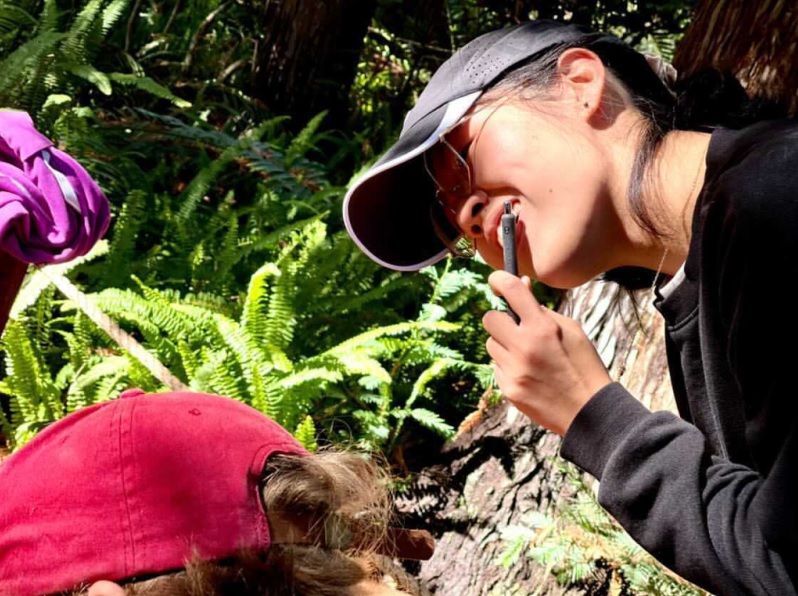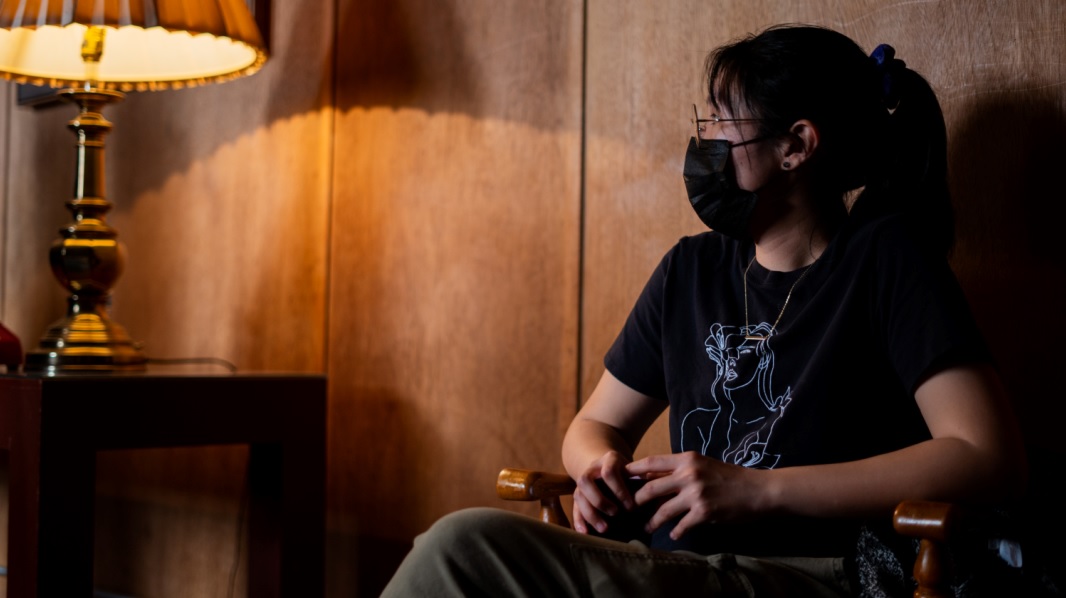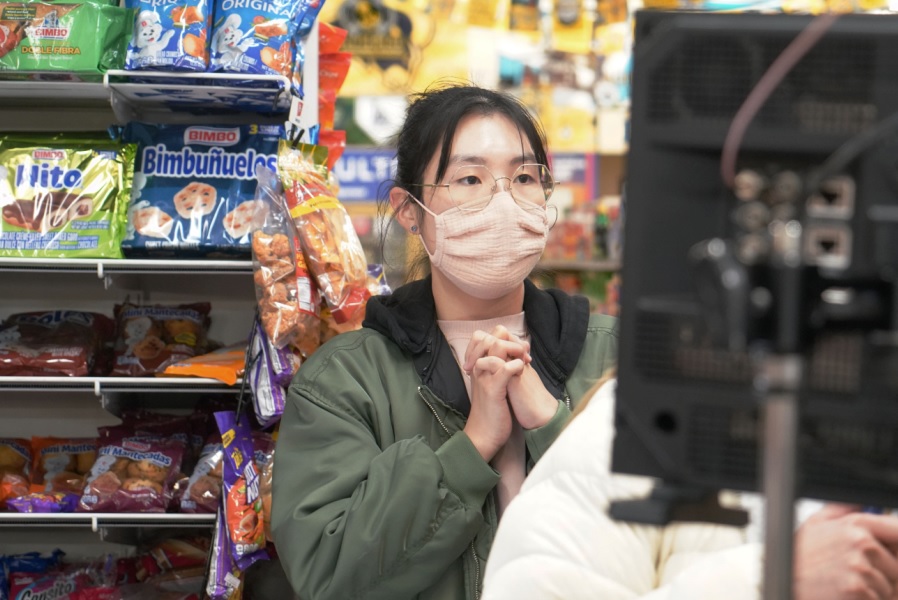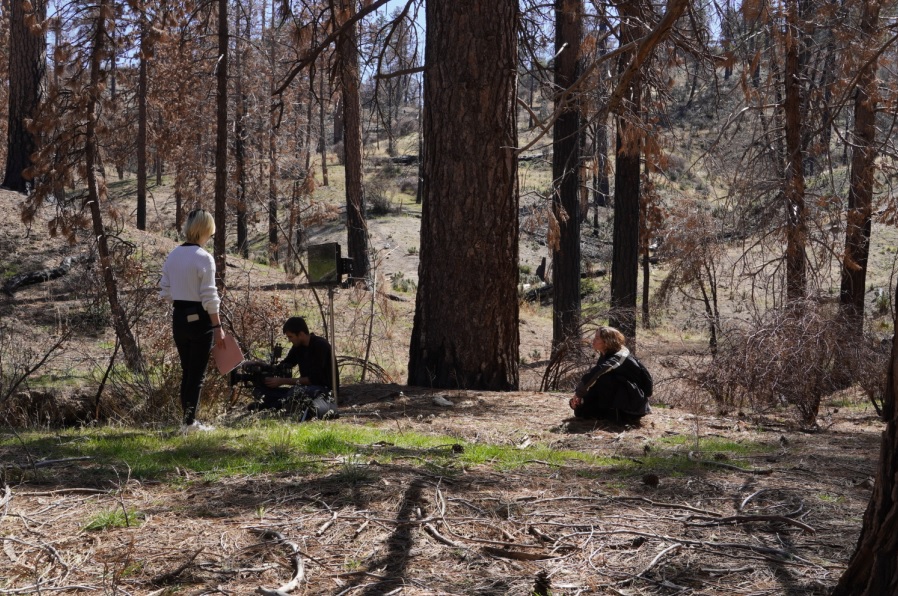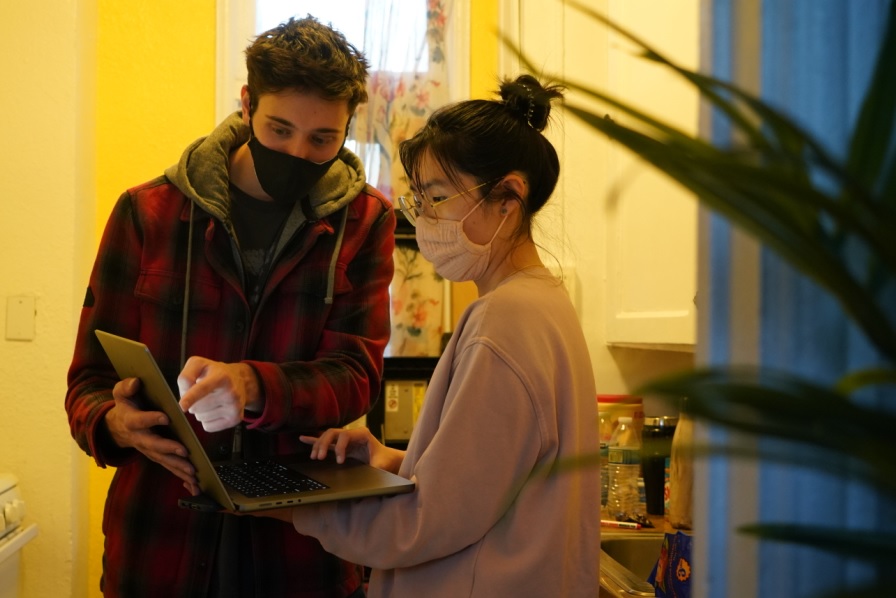When thinking about movie business, people are generally aware of the importance of such positions as director or screenwriter but being a producer is just as important. This is a person who supports a project from the get-go until its official premiere. Oliver from Asian Film Fans sits down to talk with Valerie Tan, a Singaporean born producer from Los Angeles. Read the full story about passion, challenges, and rewarding creativity.
You were born in Singapore but ended up in Los Angeles as a film producer. How did that come about?
I absolutely have my older sister to thank when it comes to my journey to America. My sister had left two years before me, attending a boarding school in New York. And when it came to my turn to potentially go to high school in America, I was unsure what to do. I love Singapore, it’s where I grew up, and there was such a sense of comfort and safety in my home country. But there were also many things that I wanted to pursue and explore. I had always loved art and film, and I knew going to a different school was going to give me the experience and education that I was craving.
Leaving Singapore was also certainly a form of escape, one that my sister helped me feel brave enough to take. This was sort of the first step in my journey to Los Angeles. Over the course of boarding school, I honed all the different artistic pursuits that I could, and I always landed right back at film. There was always something about film that made me feel at home. That transition to America was not the easiest. There was certainly an adjustment period, and there were many times when I felt like I couldn’t connect with my new peers culturally. But watching films was always something that I could do with my new American classmates. We didn’t have to share interests in the games we liked, the music we listened to, or the topic of conversations. We just sat there and watched a great movie, and then talked about it together. Films were like this magical card for me in terms of feeling like I could belong. After years of shivering in the cold, and being fed the Hollywood dream, I knew I wanted to be on the West Coast. For college, I found myself in Los Angeles pursuing a degree in Film Production at the University of Southern California. That solidified my place here in LA. I’ve continued to meet great people that share this love and I have built a strong community here. I’ve come to love the city and the industry, and have been able to call this place my home.
Producing movies is a very competitive profession. What encouraged you to enter the world of filmmaking?
That’s quite interesting because it feels like almost everything discouraged me from entering the world of filmmaking. I was warned of the difficult hours, the extreme competition, the harsh pay, the constant rejection, the strange locations. And yet, despite all of that, there’s no other career that I would want to pursue. It’s kind of crazy, but I think everyone that comes into this profession has just that little bit of crazy in them. Honestly, you have to just love filmmaking to the point that you’re willing to go through the trenches and get out the other side fully scabbed and bruised. But if you do love it, there’s nothing quite like producing a movie. To bring everything together, to watch a small idea or concept slowly form into a full-blown production. It’s this torturous yet euphoric process to create something that you love. I liken it to giving birth, though I’m sure many mothers might disagree! I’m a huge believer in doing what you are passionate about. I’m not driven by huge financial success, I’m a film producer because it makes me happy. Of course, thinking about the budget and ensuring that the film can be profitable is a huge part of my job, but my main motivation is that I get to wake up every day and do a job that gives me so much joy and excitement, and that’s what encouraged me to enter the world of filmmaking. I found something that I love; why in the world would I give that up?
How it is to be an international producer in America?
Being an international producer means having the opportunity to bridge the gap between your home country and America. It means being in that unique position where you are able to see varying perspectives and share them in the tried-and-true method of storytelling. In a more business sense, I have more markets open to me. And I get to have more flexibility and fluidity in terms of where I can hone my craft. This is both geologically, and also in terms of the languages that I can speak. In a more artistic sense, I get to share my stories and my culture, and at the same time have a special take on American culture through my lens as a Singaporean.
What were the first movie projects you were working on during your university days?
Anything and everything! The first movie projects were those that my peers and I were excited to make and collaborate on together. I worked on films that ranged from sci-fi, comedy, family drama, rom-com, experimental, animations, to many more. Truly anything that I could get my hands on. As much as I don’t want to slander the creative work of my peers whom I greatly respect and admire, I think it is important to mention that none of these projects were particularly amazing. One of the greatest gifts of a university is this opportunity to keep failing as you try new things. Every project helped me learn what I did enjoy making, every project showed me how to succeed in certain areas, and every project taught me how to not get discouraged in moments of failure.
How do you select movie-worthy material? Does a director pitch an idea to you?
I select movie-worthy materials in two ways. I either enjoy the story concept, or I really want to work with the director or creative team. Often, directors will pitch ideas to me. I read through scripts and pitch decks, and if an idea really stands out that I connect with, I’ll hop onto the projects. I gear towards materials that have strong character relationships, and those that come from the heart. When I get a script that has strong raw emotions, and feels really real and grounded I get excited. When I can get excited about the material just by reading through a pitch deck, I know that’s definitely a project worth making. Additionally, I’m passionate about making films showcasing underrepresented voices or unique perspectives. Part of my desire to be a film producer has always been about wanting to change the tapestry of the content we see on screen. I tend to seek out collaborators that are women of color and have stories that don’t tend to make it onto the screen.
However, the kicker is that I can have all these opinions on the pitch deck and the story, but it can all change based on the writer or director. When I meet someone that is passionate and dedicated, and really interesting, I think they're worth collaborating with. I want to work with people with various life experiences, and truly feel like their voice and their story is worth my time and effort. When I hop onto a project, I know I’m going to be working very closely with the director, and if I can’t feel that energy and excitement for them, then I can’t get excited about the project.
What about the funding? Are there ways for independent filmmakers to make their ideas come true without going bankrupt?
That’s always the question! I wish I had the magic answer to independent filmmakers, but unfortunately, there isn’t. The good part is that there are many different funding avenues, and you never know what you might stumble upon. No two projects that I have produced have been the same in terms of finding funding. Some films I’ve been a part of used crowdfunding, others have found individual donors, some relied on grants, and some received award money from film festivals. What I can say is that the methods are out there. Hone your story, and hone your pitch. Make that first-minute introduction of yourself as a filmmaker and your film perfect. You can’t control chance and luck, but you can control how prepared you are when those chances come by. It certainly isn’t easy, and sometimes it takes a lot of guts to just outright ask for money, but if you have a project that you truly and strongly believe in, chances are other people will believe in you too.
Can you provide us with more details about the recent films you are currently working on?
Absolutely! The two latest shorts that I would love to share are The Story of This Life and Bleed, Don’t Die. Both are vastly different films, but both are made with incredibly talented international filmmakers. The Story of This Life is a Chinese film about a father who gets notified about his son’s death from COVID-19 and has to fly to Los Angeles from China to collect his remnants. Not knowing how to speak English, he hires a translator who helps him through the process, and slowly they develop a mutual understanding of one another. This film is incredibly timely and also means so much to me. Like many other internationals with families far away, that feeling of missing home can be strong and painful. Worst still, over the pandemic, that distance was only made to seem even further. Director and fellow producer, Alex Jiang, touches on some of the worst nightmares a parent can have when their child is overseas. And she does so with maturity and sensibility beyond her age. Through the film, the father, who had never visited his son in America, is given small insights into his son’s life. Those painful and poignant moments of feeling closer to his child but also feeling like he never truly knew him will make you want to call your Mom or Dad immediately. The film is currently in post-production and will be entering the festival circuit this coming summer.
Bleed, Don’t Die is a coming-of-age post-apocalyptic film about two estranged sisters as they struggle to rekindle their bond. An incredibly raw and dynamic film, it will stun you with beautiful scenery as much as it will have you on the edge of your seat. I had a blast producing this film. I love the outdoors and nature, and this film gave me the chance to have a weekend up in the Angeles Forest and call it work! I think the film really shines with writer-director-actress Vitória Vasconcellos. You can see, feel, and appreciate her sense of style and creativity in every scene. It’s filled with emotion and heart. I came to produce this film because it was about sisters. My sister was the only family member I had when I came to America. It felt like us against the world, us against our parents, us against our school, us against Singapore, or us against America. I felt confident coming onto the project as a producer because beyond the apocalyptic genre, I could see the heart of the story. And I knew that as a producer I was going to stay true to that. Bleed, Don’t Die is also currently in post-production and is slated to complete at the end of May.
Can you give some pieces of advice to aspiring filmmakers out there?
Find your voice. I think that’s one of the hardest parts. Everyone in the film industry loves making films. That’s sort of the low bar for entering the industry. But finding what you want to say and how you want to say it is the must-have after it. How you find that voice can differ greatly. If you’re a writer, it’s all about writing and churning out content from the start. You only get better with practice, and the more you write, the more you’ll learn what you gravitate towards writing. As a producer, I found myself particularly drawn toward family drama.
What are your future plans?
Lots! I’ve been continuing to develop my feature script in which I am currently a part of a writing fellowship. I will be writing/directing a project in the summer. And I have other projects that I’m producing slated down the line. I update my website valtanfilm.com to reflect the various film projects that I have completed or are upcoming!
For my future plans, I want to keep making films! I hope to one day be able to form my own international production company. I think there’s been a rise in interest in filmmakers from different countries, and I would love to be able to facilitate various filmmakers from across the world in collaboration!
Thank you for the conversation.

